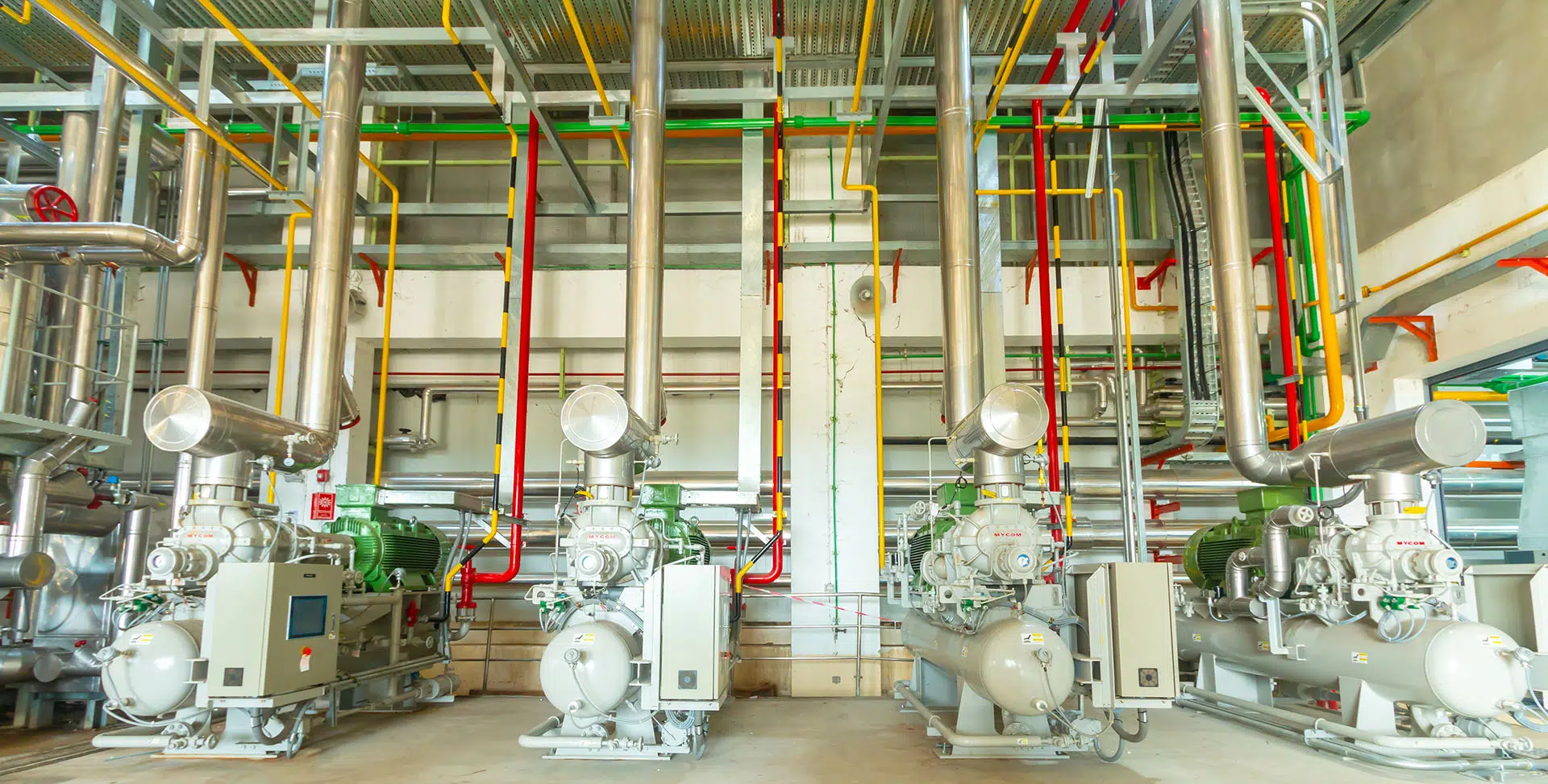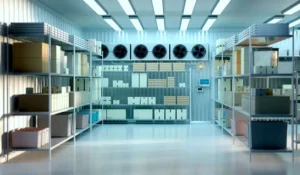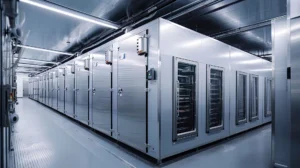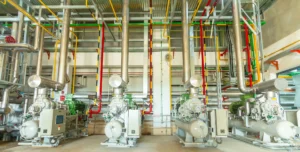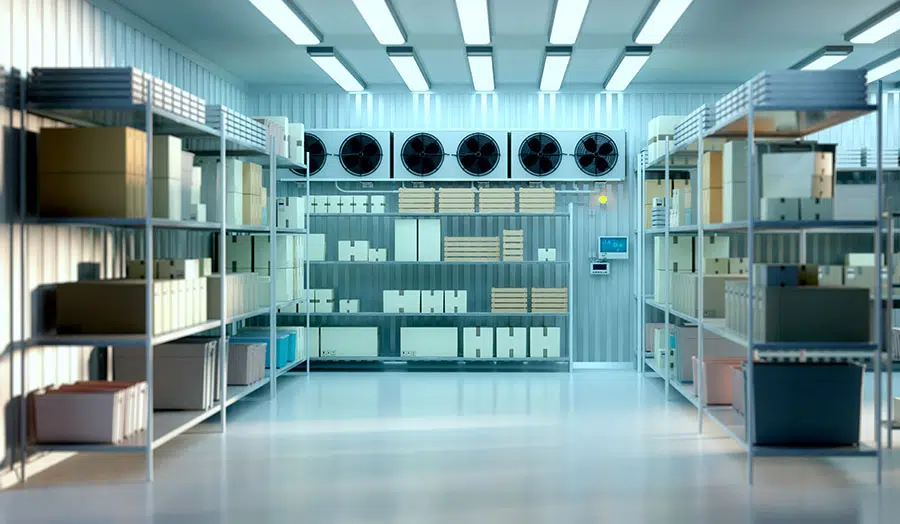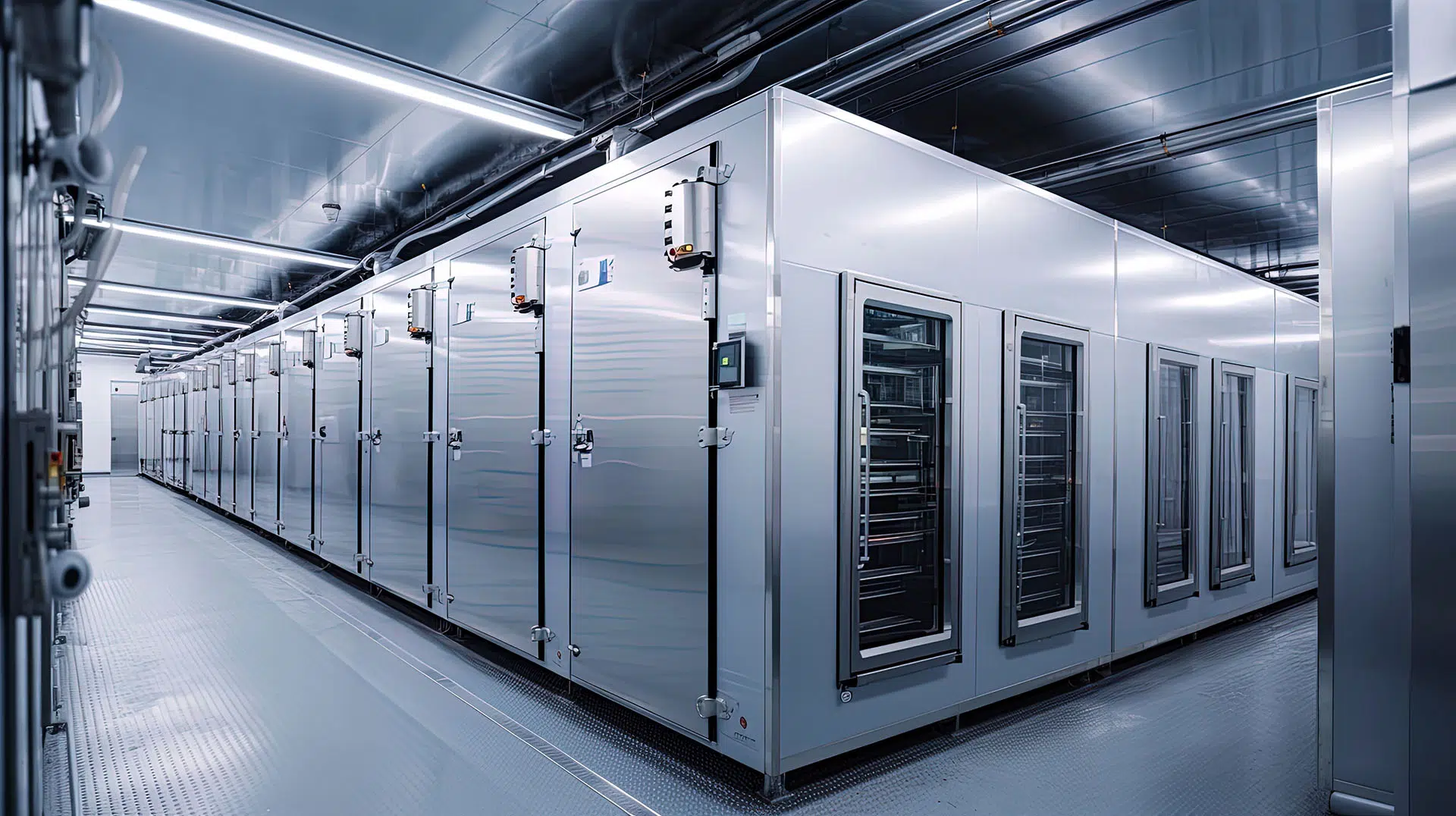Industrial refrigeration is the process of cooling and storing materials and products in an industrial setting. It is an essential part of many industries, including food processing, manufacturing, and pharmaceuticals.
Industrial refrigeration systems work by using a refrigerant to transfer heat from the inside of the unit to the outside. The refrigerant is a special gas or liquid that has a low boiling point. When the refrigerant is compressed, it turns into a gas and absorbs heat from the inside of the unit. The hot gas then flows through a condenser, where it cools down and turns back into a liquid. The liquid refrigerant then flows through an expansion valve, where it expands and cools down even further. The cold refrigerant then flows back into the evaporator, where it starts the cycle over again.
Industrial refrigeration systems are important for a number of reasons. They can help to:
- Maintain product quality: Industrial refrigeration systems can help to keep products at a safe temperature, which can help to maintain their quality and shelf life.
- Increase efficiency: Industrial refrigeration systems can help to improve energy efficiency, which can save businesses money.
- Reduce waste: Industrial refrigeration systems can help to reduce waste by preventing the spoilage of food and other products.
How to choose the right industrial refrigeration system
When choosing an industrial refrigeration system, there are a number of factors to consider, including:
- The size of the space that needs to be cooled: Cold storage facilities can be very large, so it is important to choose a system that is large enough to cool the entire space.
- The type of material or product that needs to be cooled: Different materials and products require different temperatures. It is important to choose a system that can cool the material or product to the desired temperature.
- The budget: Industrial refrigeration systems can range in price from a few thousand dollars to several million dollars.
It is important to consult with an industrial refrigeration contractor to get help choosing the right system for your needs.
How to maintain industrial refrigeration systems
Industrial refrigeration systems require regular maintenance to ensure that they operate efficiently and safely. Some of the tasks that should be performed on a regular basis include:
- Cleaning the coils: The coils are responsible for transferring heat from the inside of the unit to the outside. If the coils are dirty, they will not be able to transfer heat as efficiently, which can lead to decreased performance and increased energy costs.
- Changing the filters: The filters help to remove dust and debris from the air that is circulated through the unit. If the filters are not changed regularly, they can become clogged, which can reduce airflow and lead to decreased performance.
- Charging the refrigerant: The refrigerant is what makes the system work. If the refrigerant level drops, the system will not be able to cool as efficiently.
It is important to have an industrial refrigeration contractor perform a full inspection of your system at least once a year. This will help to identify any potential problems before they become serious.

